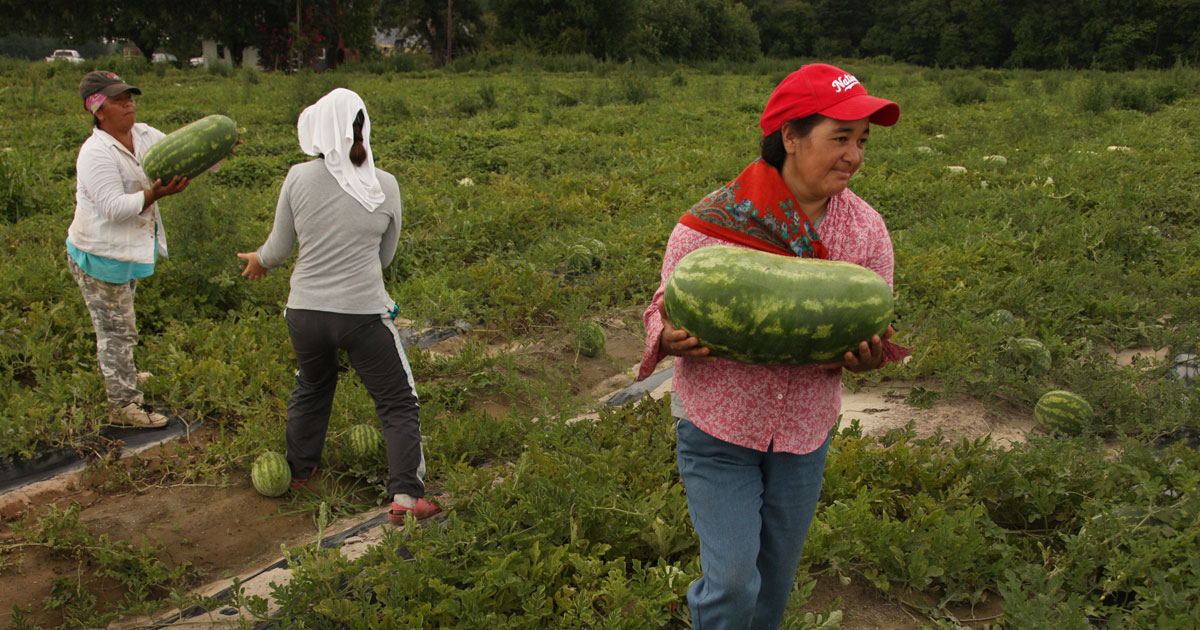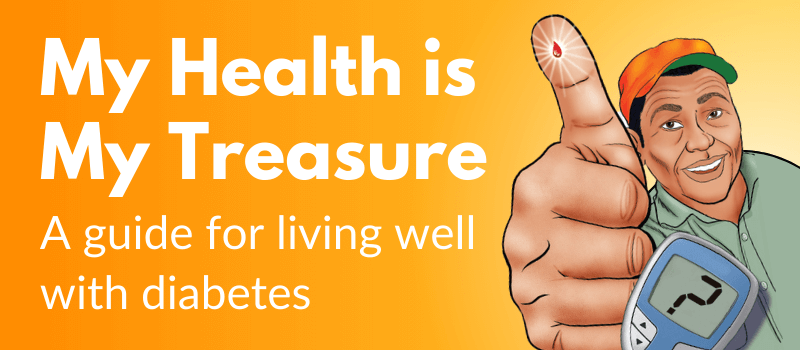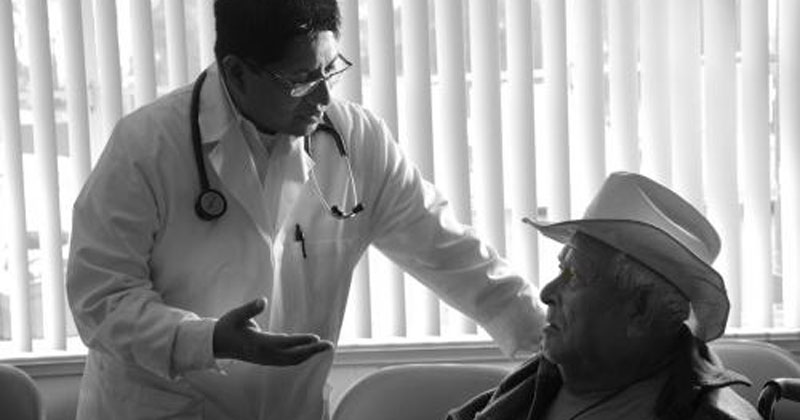Diabetes

Diabetes is a leading chronic health condition among patients served by federally funded health centers, and the seventh leading cause of death in the US. Over 12% of Hispanics in the US suffer from diabetes, compared to 9.4 percent of the population overall.1 In addition to a greater prevalence, Hispanics suffer worse outcomes. Hispanics with diabetes are twice as likely to be admitted to a hospital for lower extremity amputations compared to non-Hispanic whites with diabetes, and are three times more likely to have end stage renal disease due to diabetes.2
Among agricultural workers, most of whom in the US are Hispanic, diabetes rates may be even higher due to:
- Knowledge barriers such as a lack of information in their native language, low-literacy levels, little medical knowledge, and conflicting or preferred traditional health care practices, beliefs, and dietary practices;
- Poverty, with unreliable transportation, lack of insurance and prescription coverage, inability to buy services and supplies or to modify diets, and substandard housing that may lack refrigeration, privacy, or adequate bath facilities;
- Seasonal nature of their work, in which they need to move to a new location with the seasons, causing discontinuity of care and unfamiliar health care systems, as well as special needs related to traveling long distances;
- Legal considerations associated with the H-2A vis or other status of the patient and family, and work environments that typically do not include benefits, supports and protections such as disability coverage or worker's compensation;
- Work environments that complicate the needs associated with foot care, glucose monitoring, hydration, rest, and self-medication.
MCN’s approach to reduce the burden of diabetes among people moving like farmworkers includes resources like our comic book, continuity of care services through Health Network, and our very popular Diabetes ECHO webinar series designed for Spanish-speaking Community Health Workers. Here is more on each of these initiatives.

My Health Is My Treasure: A Guide For Living Well With Diabetes
To help assist agricultural workers and others in learning about this diagnosis, Migrant Clinicians Network partnered with professional artist and collaborator Salvador Sáenz to create “Mi salud es mi tesoro: Un guía para vivir bien con diabetes,” or, “My Health is My Treasure: A Guide to Living Well with Diabetes.”
This second-edition comic book explores the topic through the full-color story of an agricultural farmworker named Goyo, whose recent diagnosis of diabetes prompts him to engage in conversations with other agricultural workers on topics of diet, exercise, and illness prevention while facing the unique hurdles of a low-wage agricultural worker.
This comic book is available for free to download and print. This comic book is available in three editions:
- Spanish, our original and most popular edition.
- Spanish (Caribbean), aimed toward Spanish-speaking populations in Puerto Rico and other parts of the Caribbean, with changes to characters, activities, and food-related content to better reflect Caribbean heritage.
- English, a translated version for non-Spanish speakers.
Health Network: Continuity of Care for People with Diabetes
Juana*, a mobile agricultural worker with diabetes, had rarely left her agricultural worker housing in Upstate New York, because of her inflexible work schedule, her unfamiliarity with the community, and her inability to speak English. With little education about her condition, she decided to ration her insulin rather than seek out a local clinic to refill her prescription. Without consistent medication, her diabetes could get out of control and she may end up in the emergency room. Her clinician enrolled her in Health Network, our continuity of care program. Our team reached out to Juana so she could get trusted information and education in Spanish, and we could help her find an appointment at a federally qualified health center nearby, so she would not ration her insulin. Learn more about Health Network and how to enroll on our Health Network page.

Improving Care, Improving Outcomes, and Reducing Cost: Training our Community Health Workers
“Care for people with diagnosed diabetes accounts for 1 in 4 health care dollars in the U.S., and more than half of that expenditure is directly attributable to diabetes.” --American Diabetes Association
A substantial amount of US medical spending is spent serving patients with diabetes. Underserved patients like mobile workers often have trouble accessing care. Without well-patient diabetes visits, outreach programs, and diabetes self-management programs that take into account the limitations and disruptions that migration present, mobile patients may avoid care until health concerns are acute, more costly, and more difficult to treat. Several health center-focused initiatives have shown that proactive well-patient diabetes visits with an integrated care team fend off crisis management. Additionally, comprehensive care aided with group meetings led by Community Health Workers (CHWs) results in lower Hemoglobin A1c numbers.4 5
MCN trains CHWs to better serve Spanish-speaking farmworker patients through MCN’s highly popular and effective annual Diabetes ECHO series.
MCN’s Project ECHO page describes our recent Diabetes ECHO sessions, featuring leading diabetes experts engaging directly with CHWs from around the country. Pre-and Post- assessments from our 2024 cohort, for example, show significant increases in knowledge by participants across all 14 questions, particularly in the ability to obtain the general medical history of patients (48% increase). The overall increase in knowledge was 36.2%.
Other Resources
MCN's Diabetes Online Toolkit has a wealth of resources.
Health Network provides assistance for any patient on the move with an ongoing health concern, including diabetes.
MCN’s archived 2021 webinar, “Diabetes Continuous Quality Improvement for Health Centers” assists health centers to better serve diabetes patients.
MCN's archived 2021 webinar, “Nutrition and Diabetes” covers the healthy diet among Latinx communities.
MCN hosts webinars about diabetes and related health concerns every year in English and Spanish. Be sure to subscribe to MCN’s mailing list to receive alerts of upcoming webinars and trainings.
References
1 American Diabetes Association. Statistics About Diabetes. http://www.diabetes.org/diabetes-basics/statistics/
2 Office of Minority Health. Diabetes and Hispanic Americans. https://minorityhealth.hhs.gov/omh/browse.aspx?lvl=4&lvlid=63
3 American Diabetes Association. Economic Costs of Diabetes in the U.S. in 2017. http://care.diabetesjournals.org/content/early/2018/03/20/dci18-0007
4 Gary TL, Bone LR, Hill MN, et al. Randomized controlled trial of the effects of nurse case manager and community health worker interventions on risk factors for diabetes-related complications in urban African Americans. Prev Med. 2003;37(1):23–32.
5 Norris SL, Chowdhury FM, Van Le K, et al. Effectiveness of community health workers in the care of persons with diabetes. Diabet Med. 2006;23(5):544–556.